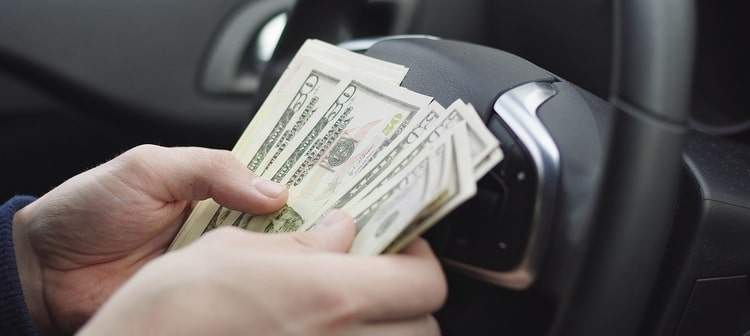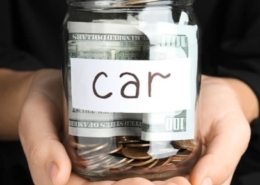Unlocking the True Cost of Car Ownership: A Comprehensive Guide
Uncover the secrets behind the true expenses of owning a car and learn practical tips to save money.
Have you ever felt the sting of unexpected car expenses? Buckle up because I’m about to take you on a ride through the uncharted territory of the actual cost of vehicle ownership.
This isn’t your typical guide; I’m not just talking about gas and insurance. I’m uncovering all the hidden financial villains lurking beneath the hood.
Get ready for a revelation that might save you from those budget-busting surprises.
Whether you’re a seasoned driver or a fresh road tripper, join me as I uncover the actual costs of car ownership and equip you with the knowledge to navigate the financial highway like a pro.
It’s time to drive confidently, leaving unexpected expenses in the rearview mirror.
Car Buying Tip: If you’re in the market for a new car, you may have noticed that finding a reasonable price can be difficult in today’s market. Many car buyers end up paying more than the suggested retail price. But don’t worry! You can still get a great deal on a new vehicle by requesting a free car price quote to compare dealer prices in your area.
Car Ownership Definition
Car ownership is possessing and maintaining a personal automobile, entailing various financial responsibilities and practical considerations.
It involves acquiring, operating, and maintaining a vehicle, impacting an individual’s daily life, mobility, and overall economic landscape.
Actual Cost of Vehicle Ownership
Car ownership is the symbiotic relationship between an individual and their four-wheeled companion. It goes beyond possessing a mode of transportation; it’s a financial and lifestyle commitment.
The actual cost of vehicle ownership goes beyond the initial price tag.
It encompasses expenses like fuel, maintenance, insurance, and unexpected repairs, offering a comprehensive view of the financial commitment tied to owning and operating a vehicle.
Understanding these ongoing costs is crucial for making informed decisions and avoiding budget surprises.
- How to Buy a New Car Below Factory Invoice Price – True dealer cost and the factory invoice price are not the same… dealer cost can be much lower.
- Figure a Fair Profit New Car Offer – How to calculate a fair profit new car offer.
- How to Buy a New Car Online – Not sure where to start? Use my step-by-step guide on how to buy a new car online.
Financing: The Road of Interest Rates
How you pay for your vehicle plays a crucial role in determining your car ownership costs due to its far-reaching impact on the financial landscape of your journey as a vehicle owner.
Interest Rates and Loan Terms
Securing financing for your vehicle involves navigating interest rates and loan terms.
The financing charges can accumulate over time, significantly increasing the overall cost. Understanding your loan agreement’s details is crucial to avoid hidden fees.
Here are three tips to ensure you navigate this financial terrain with confidence and fiscal responsibility:
Shop Around for the Best Rates
- Explore financing options from various sources, including banks, credit unions, and online lenders.
- Compare interest rates offered by different institutions to secure the most favorable terms.
- A diligent search can result in significant savings over the life of your loan.
Understand the Impact of Loan Terms
- Longer loan terms with lower monthly payments may seem attractive, but they often accumulate more interest over time.
- Consider the total cost of the loan, factoring in both the interest rate and the duration.
- Opt for the shortest loan term you can comfortably afford to minimize overall interest expenses.
Read the Fine Print of Your Loan Agreement
- Scrutinize the loan agreement for hidden fees, such as prepayment penalties or origination charges.
- Seek clarification on any terms or clauses that seem unclear or ambiguous.
- A comprehensive understanding of the loan agreement details is crucial to avoiding unexpected financial surprises.
The Ongoing Saga: Operating Costs
“Operating costs” are a factor in determining your overall car ownership costs, exerting a substantial influence on the financial aspects of maintaining and using your vehicle.
Fuel Efficiency Matters
Fuel efficiency is more than a selling point; it’s a critical factor in operating costs.
Opting for a fuel-efficient vehicle can save a substantial amount over its lifespan.
Monitor those miles per gallon (MPG) figures to make an informed decision.
Choose Wisely: Opt for Fuel Efficiency
- Prioritize vehicles with high fuel efficiency ratings when making a purchase.
- Research and compare different models’ miles per gallon (MPG) figures.
- If fuel efficiency is a priority, check if buying an electric vehicle is right for you.
- Investing in a fuel-efficient car sets the stage for long-term savings.
Mindful Driving Habits
- Adopt fuel-efficient driving habits, such as gradual acceleration and smooth braking.
- Avoid unnecessary idling, as it consumes fuel without mileage gains.
- Regularly maintain your vehicle to optimize fuel efficiency, including timely oil changes and proper tire inflation.
Monitor and Adapt
- Keep a vigilant eye on your vehicle’s fuel efficiency over time.
- If you notice a decline in MPG, address it promptly through maintenance or necessary repairs.
- Stay informed about advancements in fuel-efficient technologies that can enhance your vehicle’s performance.
Real-Time Bargain Hunting: Turn to Edmunds for instant access to the latest and greatest local deals, saving you time, money, and stress.
Maintenance: The Pit Stops of Financial Wisdom
Routine maintenance is the unsung hero, preventing breakdowns and minimizing maintenance costs.
From oil changes to tire rotations, these pit stops are investments in the longevity of your vehicle and the prosperity of your wallet.
Adhere to Regular Service Intervals
- Follow the manufacturer’s recommended maintenance schedule.
- Regular oil changes, fluid checks, and filter replacements contribute to a smoothly running vehicle.
- Consistent upkeep minimizes the risk of costly repairs and extends the life of essential components.
DIY Where Possible
- Learn and perform simple maintenance tasks at home, such as changing the air filter or checking tire pressure.
- DIY efforts can save money on labor costs associated with routine maintenance.
- Consult your vehicle’s manual or online resources for step-by-step guides on basic maintenance procedures.
Invest in Quality Parts
- Opt for high-quality replacement parts when necessary.
- While upfront costs may be slightly higher, quality parts can contribute to long-term savings by reducing the frequency of replacements.
- Consider aftermarket parts from reputable brands, ensuring a balance between affordability and durability.
Repairs and Unexpected Surprises
Surprises can lurk around the corner, no matter how diligent you are with maintenance.
Unexpected repairs are the wildcard in the ongoing costs category.
Creating a financial cushion for unforeseen issues is a savvy move that can prevent budgetary stress when your vehicle decides to throw a curveball.
Establish an Emergency Fund
- Create a dedicated emergency fund for unexpected repairs.
- Allocate a portion of your budget to this fund regularly to ensure it’s sufficiently robust.
- Having a financial cushion minimizes the impact of unforeseen issues on your overall budget.
Regular Vehicle Check-Ups
- Schedule routine inspections with a trusted mechanic to catch potential issues early.
- Address minor concerns promptly to prevent them from escalating into major, costly repairs.
- Proactive maintenance reduces the likelihood of surprises.
Research and Understand Common Issues
- Learn about common issues associated with your vehicle’s make and model.
- Stay informed about any recalls or manufacturer advisories.
- With knowledge, you can anticipate potential problems and take preventive measures, avoiding surprise expenses.
Insurance: The Guardrails of Legal Obligation
Auto insurance is the safety net, a legal necessity for car ownership.
Navigating the diverse terrain of insurance premiums involves understanding factors like your driving history and coverage types.
Strategically choosing your coverage can be the shortcut to financial security.
Maintain a Clean Driving Record
- A history of safe driving can lead to lower insurance premiums.
- Avoiding accidents and traffic violations contributes to a favorable driving record.
- Safe driving habits keep you and others secure and help minimize insurance costs.
Shop Around for the Best Rates
- Explore insurance options from different providers.
- Compare insurance quotes to find the most competitive rates for your coverage needs.
- Periodically reviewing and adjusting your insurance policy can result in ongoing savings.
Customize Coverage to Your Needs
- Assess your specific needs and tailor coverage accordingly.
- Consider factors such as the age and condition of your vehicle, driving habits, and geographic location.
- Avoid unnecessary coverage that may inflate premiums, focusing on a personalized plan that provides adequate protection without excess costs.
Depreciation: The Financial Landscape
Depreciation is a critical determinant of car ownership costs, substantially influencing the overall financial dynamics of owning and eventually selling your vehicle.
Resale Value: The Exit Ramp Strategy
Depreciation is the natural landscape of car ownership. Understanding resale value is your exit ramp strategy.
Choosing a vehicle with solid resale value is like having a financial off-ramp, minimizing the impact on your overall journey.
Research Resale Value Ratings
- Explore and compare resale value ratings for different makes and models.
- Reliable sources such as automotive publications and industry reports can provide insights into which vehicles hold their value well over time.
- Prioritize cars with a reputation for solid resale value.
Maintain Comprehensive Service Records
- Keep detailed records of your vehicle’s maintenance and service history.
- A well-documented service record enhances buyer confidence and can positively impact resale value.
- Regular maintenance improves the car’s overall condition, making it more appealing to prospective buyers.
Opt for Popular Features and Colors
- Choose popular and timeless features and colors when purchasing a vehicle.
- Trends and preferences change over time, but classic options tend to have broader appeal, attracting more potential buyers.
- A vehicle with features and colors in demand may retain its resale value better than one with niche or outdated options.
The Sum of Parts: Calculating the True Cost of Vehicle Ownership
In the rear-view mirror, we see the sum of the journey—purchase price, financing charges, operating costs, insurance premiums, and depreciation.
This holistic view calculates the Actual Cost of Vehicle Ownership, a beacon guiding you to financial clarity.
Here’s why understanding and calculating the actual cost of ownership, considering all components, is crucial:
Comprehensive Financial Picture
- Considering the sum of parts provides a comprehensive financial picture of owning a car. It encompasses the upfront purchase price and ongoing expenses, including financing charges, operating costs, insurance premiums, and depreciation.
- This comprehensive view lets you understand the complete financial commitment of owning a vehicle, enabling better budgeting and financial planning.
Avoiding Financial Surprises
- Acknowledging and calculating all components of car ownership costs minimizes the risk of unexpected financial surprises. Operating costs, insurance premiums, and depreciation are often overlooked in the initial excitement of purchasing a car.
- Knowing the actual cost of ownership helps you set realistic financial expectations and ensures that you are financially prepared for owning and maintaining your vehicle.
Informed Decision-Making
- Understanding the actual cost of ownership empowers you to make informed decisions when purchasing a vehicle. It allows you to evaluate the long-term financial implications and choose a car that aligns with your budget and overall financial goals.
- With this knowledge, you can prioritize fuel-efficient options, select appropriate insurance coverage, and make strategic decisions contributing to a financially sound ownership experience.
Strategic Financial Planning
- The sum-of-parts approach aids in strategic financial planning throughout the ownership period. It enables you to allocate funds for each component, from routine maintenance to insurance premiums, ensuring your vehicle has a well-balanced and sustainable financial plan.
- In summary, calculating the actual cost of ownership by considering all components provides a clear and realistic understanding of the financial commitment involved in owning a car. This holistic approach ensures that you are equipped to make sound financial decisions, avoid surprises, and navigate the road of car ownership with economic confidence.
Conclusion: Your Road to Financial Wellness
As you travel this road of car ownership, consider it not just as a series of transactions but as a financial expedition.
By implementing the insights gained from this exploration, you position yourself for success in the intricate automotive finance world.
Whether you’re a seasoned driver or a first-time car owner, the keys to financial wellness in car ownership lie in knowledge, strategic decision-making, and a continuous commitment to financial awareness.
Remember, the road may be long, but with financial clarity as your compass, you can confidently steer towards a destination of lower car ownership costs.
Safe travels!
FAQs About Actual Vehicle Ownership Costs
What comprises the actual cost of car ownership?
It includes purchase price, financing charges, operating costs, insurance premiums, and depreciation.
How can I calculate the true cost of ownership?
Consider all components—purchase price, financing, operating costs, insurance, and depreciation.
Is a higher initial purchase price always a disadvantage?
Not necessarily; factors like resale value and financing terms can offset a higher purchase price.
Can DIY maintenance save me money?
Learning and performing simple maintenance tasks at home can reduce labor costs.
How does depreciation impact my ownership costs?
Depreciation affects resale value, influencing the overall cost of owning your vehicle.
How often should I reassess my insurance coverage?
Periodically review and adjust coverage based on changes in driving habits or the value of your vehicle.
The Road to Informed Vehicle Ownership Choices
Are you on the brink of a thrilling car-buying journey?
Equip yourself with knowledge, your indispensable companion, whether opting for a brand-new model or choosing the charm of a pre-loved vehicle.
This applies to the allure of a fresh ride and the timeless appeal of a pre-owned gem; diligent research acts as your guiding star in this expedition.
Here’s why it’s paramount:
- Strategic Down Payments: The money you invest upfront influences financing rates and monthly payments. A substantial down payment can significantly reduce your loan amount, translating to potential interest savings.
- Cracking the Code on Dealer Profit: Dealerships aim for profitability. By delving into research, you grasp what constitutes a fair profit offer, creating a win-win scenario with a good deal for you and a reasonable profit for the dealership.
- Unveiling Dealer Cost: Peer behind the scenes and discover the dealer invoice price or cost. This peek into the dealership’s expenditure empowers you to negotiate effectively, striving for a fair price that satisfies both parties.
- Harnessing Online Tools: Before entering a dealership, leverage free online car-buying tools like RydeShopper and Edmunds for local price quotes. Armed with these figures, you gain a ballpark estimate, ensuring you’re well-prepared and shielded against potential overcharges.
By adopting a proactive and well-informed approach, you position yourself as a savvy consumer, securing a car you adore and a deal that aligns with your financial goals.
Remember: In the thrilling race of car-buying, knowledge becomes your horsepower!

















